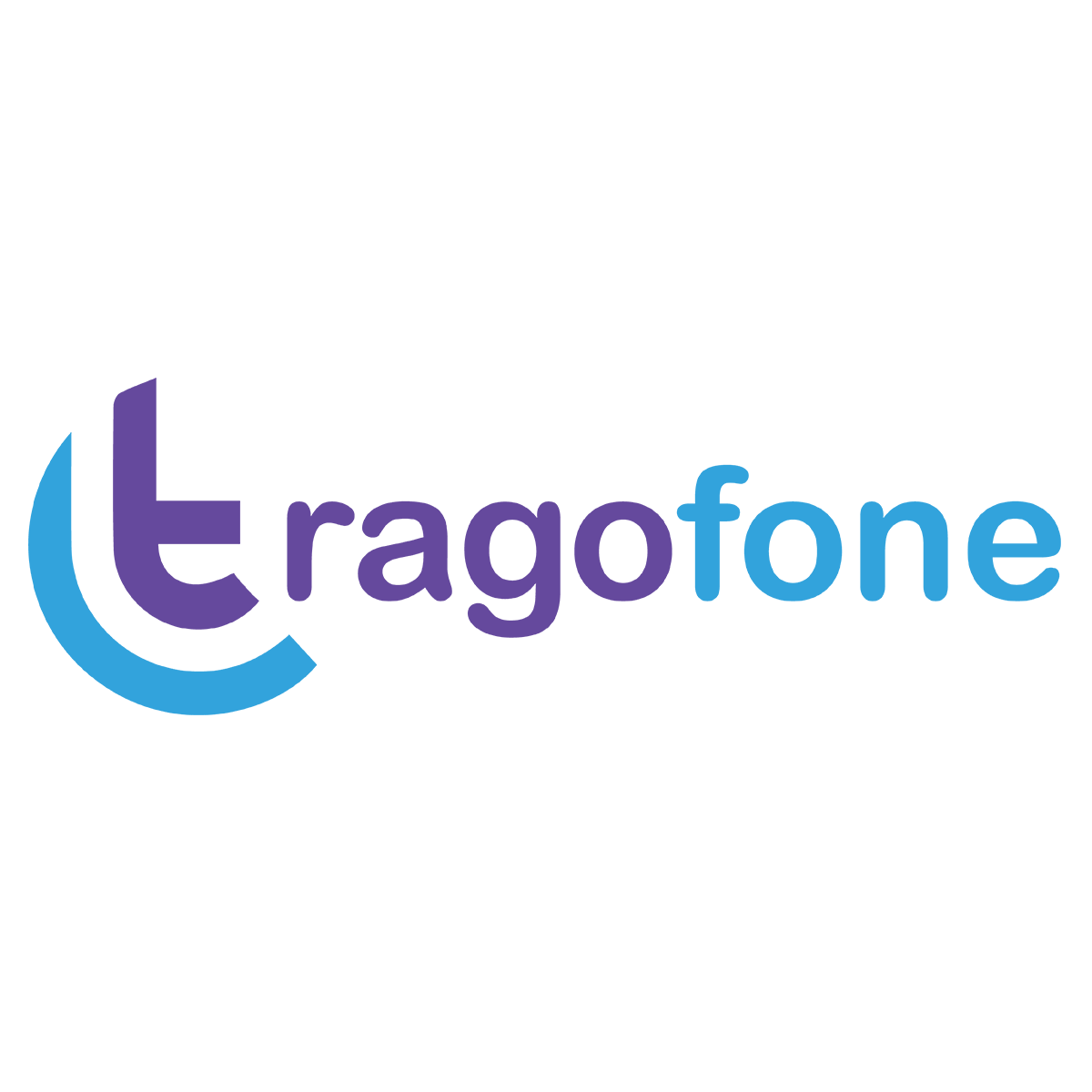Yes, VoIP phone services may be accessed from many devices and platforms. Because VoIP phone services are internet-based, users can access them from any device with an internet connection, such as smartphones, tablets, laptops, and desktop computers. Furthermore, VoIP phone services are compatible with a variety of operating systems, including iOS, Android, Windows, and Mac, making them a convenient and adaptable communication solution for organisations and individuals.
List of 20 Best VoIP Phone Services
SessionCloud - an innovative VoIP solution that simplifies the integration of softphones and enhances communication across all networks. Ideal for businesses and service providers, SessionCloud offers customizable branding, robust security measures,...Read More SessionCloud
Dialaxy is a telephony solution for businesses looking to connect with customers globally. Our cloud-based platform allows for seamless communication through any device, from mobile phones to laptops. By bridging the gap between providers and end-use...Read More Dialaxy
Whispp - a AI technology and calling software specifically designed to enhance communication for those with impaired vocal cords or hushed speech. Our innovative software allows you to choose your desired voice, regardless of language, and even mimic...Read More Whispp
Quvu - call center platform aimed at elevating customer engagements and streamlining business operations. With its advanced capabilities such as real-time analytics, smart routing, and seamless integration, Quvu empowers businesses to improve product...Read More Quvu
Tpad PBX is a communication solution designed to cater to the needs of businesses of all sizes. Choose from a range of options, including cloud-based and on-site, to ensure the best fit for your organization. With innovative features and unparalleled...Read More Tpad PBX
InfoFlo is a CRM solution that is perfect for businesses of any size. This comprehensive system streamlines lead management, follow-ups, and email communication to increase sales productivity by over 2 times. With all these essential tasks under one...Read More InfoFlo
Soho66 is a cloud technology solution created by the highly acclaimed Pebbletree team. This award-winning software empowers businesses by revolutionizing their communication processes with the use of advanced cloud technology. Say goodbye to tedious...Read More Soho66
Slingshot VoIP is a communication solution for your business. Enjoy unlimited voicemail, advanced auto-attendant, and top-notch security features. Seamlessly integrate with popular CRM applications, experience 99.99% uptime guarantee, and utilize det...Read More Slingshot VoIP
VoIPstudio: the leading VoIP phone service tailored for businesses. With our budget-friendly and reliable communication solution, enjoy advanced features, seamless integration with your existing devices and CRMs, and absolutely no hidden costs or lon...Read More VoIPstudio
Callture Connect – your ultimate solution for all your business phone requirements. With affordable rates and superior features, this service ensures efficient communication and significant cost-savings for businesses of all sizes. Never compr...Read More Callture Connect
Cloud SIM is a mobile app that allows you to add up to four extra phone numbers to your existing smartphone. Stay connected with free calls and messaging between users, budget-friendly international calls, and keep your personal number secure for imp...Read More Cloud SIM
Telnum is a provider of cloud-based telephony solutions with a global presence. Our feature-rich platform offers an extensive range of services that seamlessly integrate with your business, such as VoIP, virtual IP PBX, virtual numbers, IVR, messagin...Read More Telnum
SureVoIP is a telecommunications software that is revolutionizing the industry. Its advanced technology and unrivaled dependability are setting a new standard for business communication, resulting in seamless connectivity and increased efficiency acr...Read More SureVoIP
Moon Dialer: solution for making affordable international calls. Say farewell to expensive phone bills and hello to savings of up to 90%. Our revolutionary VoIP and WiFi calling app allows for crystal-clear internet calls, as well as convenient featu...Read More Moon Dialer: VoIP & WiFi Call
Infobip is a omnichannel communication solution that simplifies the management of different platforms such as email, WhatsApp, SMS, and Facebook Messenger. With advanced features like Broadcasting, WhatsApp Chatbot, and automated notifications, Infob...Read More Infobip
Acefone is the top cloud-based PBX solution for businesses. Our advanced features and round-the-clock support aim to enhance your productivity. Upgrade your communication with our hosted phone system and experience seamless integration. With Acefone,...Read More Acefone
Yo Telecom is a communication solution for businesses. Our advanced system seamlessly integrates into your operations, providing 24/7 support and comprehensive training. With customizable features, Yo Telecom enhances connectivity, simplifies process...Read More Yo Telecom
CrazyCall - the go-to Cloud Telephony solution for Call Centers and Sales Professionals. Say goodbye to complex installation and billing procedures - our innovative platform is accessible right from your browser. Give your team the power to achieve s...Read More CrazyCall
Tragofone - the leading VOIP SIP Softphone that surpasses all communication needs. Featuring cutting-edge WebRTC compatibility, Tragofone guarantees exceptional security and top-quality performance. With effortless auto-provisioning, setting up Trago...Read More Tragofone
Net2Phone is a business communication solution that combines voice, messaging, and video conferencing to enhance productivity and customer engagement. With comprehensive tools, automation, and advanced analytics at your fingertips, Net2Phone streamli...Read More Net2Phone
Learn More About VoIP Phone Services
- What Is VoIP Phone Services?
- What Are The Recent Trends In VoIP Phone Services?
- Benefits Of Using VoIP Phone Services
- Important Factors To Consider While Purchasing VoIP Phone Services?
- What Are The Key Features To Look For In VoIP Phone Services?
- Why Do Businesses Need VoIP Phone Services?
- How Much Time Is Required To Implement VoIP Phone Services?
- What Is The Level Of Customization Available In VoIP Phone Services?
- Which Industries Can Benefit The Most From VoIP Phone Services?
- Conclusion
What Is VoIP Phone Services?
VoIP phone service, also known as Voice over Internet Protocol, is a technology that allows users to make and receive phone calls via the internet rather than traditional phone lines. This means that instead of using physical phone lines, calls are sent as data packets across an IP network. This technology has transformed the way organizations and individuals communicate by providing an affordable and feature-rich option.
One of the most significant benefits of using VoIP phone services is cost reduction. Unlike traditional phone services, VoIP makes and receives calls over the internet, eliminating the need for expensive telephone infrastructure. This correlates to lower monthly bills and long-distance call charges, making it the best option for organizations with significant call volumes. Furthermore, VoIP phone services include a variety of features that improve communication and collaboration.
These include call waiting, voicemail, call forwarding, video conferencing, and more, all of which may be readily managed via an intuitive interface. This simplifies and streamlines communication, leading to increased productivity and efficiency at work. In addition to cost savings and better features, VoIP phone services provide scalability and flexibility. This means that enterprises may quickly scale their phone systems to meet their growing needs without incurring additional costs.
Furthermore, users may use their phone services from anywhere with an internet connection, making it ideal for remote workers and enterprises with many locations. When contemplating VoIP phone services, there are a few things to bear in mind. To begin, the quality of the internet connection can have an impact on call quality, thus a reliable and robust internet connection is vital. Second, certain VoIP companies may require additional hardware or software to operate their services, therefore it is critical to understand any setup requirements and associated expenses.
What Are The Recent Trends In VoIP Phone Services?
The world of communication has changed dramatically in recent years, with Voice over Internet Protocol (VoIP) becoming a popular and cost-effective solution for both organisations and people. With the constant improvements in technology, the landscape of VoIP phone services is continuously changing.
Let's explore, the latest trends in VoIP phone services that you should be aware of before making a purchase.
1. Rise Of Unified Communication: In terms of VoIP phone services, there has been a substantial transition towards unified communications (UC). UC combines many communication channels, such as voice, video, chat, and collaboration capabilities, into one platform. This increases corporate flexibility, efficiency, and productivity by allowing for seamless collaboration across several devices and platforms.
2. Increased Reliance On Cloud-Based Solutions: Cloud-based solutions have emerged as the preferred option for VoIP phone services due to their scalability, cost-effectiveness, and ease of use. Cloud-based VoIP eliminates the need for pricey gear or on-premises infrastructure. This enables organisations of all sizes to reap the benefits of VoIP without incurring major upfront fees.
3. Focus On Security And Data Privacy: As more sensitive information is exchanged via VoIP, security and data privacy are key concerns. To solve this, service providers are adding more sophisticated security measures such as encryption, firewalls, and cyber threat prevention. In addition, VoIP phone service providers prioritise compliance with data protection standards such as GDPR and HIPAA.
4. Integration Of AI And Automation: The combination of VoIP, artificial intelligence (AI), and automation has created new opportunities for enterprises. From virtual assistants to automated call routing, these tools not only simplify communication but also improve the overall customer experience. This trend is projected to continue as more organisations integrate AI and automation into their operations.
5. Rising Demand For Mobile VoIP: Mobile VoIP has grown in popularity as remote work and the use of personal devices for business have become more common. Mobile VoIP enables users to make calls, send messages, and video chat from their cellphones via a VoIP service. This trend is projected to continue as many firms adopt remote labour as a permanent option.
Benefits Of Using VoIP Phone Services
VoIP (Voice over Internet Protocol) phone services are gaining popularity among businesses and people alike. This new technology enables customers to make phone calls via the internet rather than traditional landlines. But what are the advantages of using VoIP phone services?
Let's have a closer look.
1. Cost Savings: One of the primary benefits of using VoIP phone services is the possibility of significant cost reductions. VoIP calls are often cheaper than regular phone calls since they require fewer equipment and infrastructure. Furthermore, calls between VoIP users are frequently free, independent of their geographic location. This might be very useful for businesses that receive a significant volume of international calls.
2. Flexibility And Mobility: VoIP phone services provide unparalleled freedom and mobility, allowing users to make and receive calls using any internet-connected device. This implies that you can take business calls while travelling using your smartphone, laptop, or even a desktop PC. With the rise of remote work, this capability has become critical for firms that require continual contact.
3. Advanced Features: VoIP phone services have a wealth of innovative capabilities meant to increase productivity and improve the user experience. These could include phone recording, voicemail transcription, call forwarding, auto-attendants, and others. These features can assist to simplify company interactions, increase customer service, and save time and resources.
4. Scalability: Another key benefit of VoIP phone services is their scalability. Traditional phone systems frequently require costly hardware updates to accommodate expansion or changes in call traffic. With VoIP, these changes can be handled easily via software, allowing businesses to add or remove lines as needed without incurring significant costs.
5. Integration Of Other Technologies: VoIP phone services can be integrated with other technologies, such as CRM systems, live chat, and email, to provide a more seamless communication experience. This integration gives businesses a comprehensive perspective of client interactions, making it easy to track conversations and enhance customer service.
6. Improved Call Quality: Contrary to popular assumption, VoIP phone services provide higher-quality calls than traditional landline phones. This is because VoIP uses cutting-edge technology to convert voice into digital data, reducing signal loss and interference. Furthermore, with a reliable internet connection, call quality might be superior to regular phone calls.
Important Factors To Consider While Purchasing VoIP Phone Services?
When it comes to purchasing VoIP phone services, there are numerous key elements to consider in order to make the best option for your company.
Here are the most important factors to consider when analysing and comparing VoIP phone service companies.
1. Scalability: As your firm expands, so will your communication requirements. It is critical to choose a VoIP phone service that can be scaled up or down to meet your company needs. This eliminates the headache of switching service providers or upgrading plans in the future.
2. Features And Functionality: Before selecting a service provider, consider the features and functionality provided by their VoIP phone service. Do you require call routing, auto-attendance, voicemail, or call recording? Different providers may offer a number of features at varying pricing points, so it is critical to prioritise and choose the ones that best meet your company's demands.
3. Reliability And Call Quality: The dependability and call quality of a VoIP phone service are critical for smooth communication within your organisation and with third parties. Look for suppliers with a strong track record of excellent uptime and guaranteed call quality.
4. Integration With Existing Systems: If your company already uses other communication or office tools, make sure the VoIP phone service you choose can integrate with those systems. This will allow you to optimise your operation and eliminate any disruptions or redundancies.
5. Pricing And Plans: While price should not be the only element in your decision, it is critical to understand the pricing structure and plans provided by various VoIP phone service providers. Look for suppliers who offer fair pricing with no hidden costs, and then choose the plan that best fits your budget and demands.
6. Customer Support: In the event of a technical issue or complaint, a dependable and responsive customer support team is required. Look for suppliers who give 24-hour customer assistance and have an excellent track record of responding to and resolving client issues.
7. Security And Compliance: Because your phone system will be handling sensitive company information, it is critical that the VoIP phone service provider adheres to industry-standard security protocols and compliance requirements. This will protect your company from potential data breaches and legal consequences.
What Are The Key Features To Look For In VoIP Phone Services?
When choosing a VoIP Phone Service, consumers should look for many essential aspects to ensure the best value and effectiveness for their business needs.
1. Call Quality: The most vital part of any phone service is the call quality. Look for a VoIP supplier that provides high-definition voice and has a proven track record of making clear and dependable conversations.
2. Scalability: As your firm expands, you may need to install more phone lines or extend into new locations. Make sure the VoIP solution you chose is easily scalable to meet your changing requirements.
3. Advanced Services: VoIP Phone Services provide many more services than just making and receiving calls. Look for options like auto attendants, call forwarding, voicemail to email, and call recording to boost productivity and efficiency.
4. Integration With Other Systems: To streamline workflows, you must have a VoIP service that can interact with your other corporate systems, such as CRM or helpdesk software. This enables for more efficient communication and customer service.
5. Mobile App: In today's mobile-first era, a VoIP service with a mobile app is essential. This feature allows employees to make and receive calls from wherever, keeping your business accessible and connected.
6. Security: Because important business information is communicated over phone calls, it is critical to select a VoIP provider that has strong security features, such as encryption and firewalls, to safeguard your data.
7. Customer Support: Look for a company who provides 24-hour customer service to resolve any concerns that may arise. A dependable and timely support crew can help your organization stay connected and productive at all times.
Why Do Businesses Need VoIP Phone Services?
Businesses require VoIP phone services for a variety of reasons, since contemporary technology provides various advantages that traditional landline systems do not. One of the primary reasons why organisations are migrating to VoIP is the huge cost benefits. Businesses can use VoIP to make internet calls, eliminating costly long-distance rates and lowering overall phone expenditures.
Furthermore, VoIP plans frequently include capabilities that would be considered add-ons with traditional landline services, such as conference calling, call forwarding, and voicemail, for no additional charge. This can result in significant cost savings for enterprises, particularly those that make a large number of long-distance calls. Furthermore, VoIP phone services are extremely flexible and scalable, making them ideal for organisations of all sizes.
Adding or eliminating lines or services on traditional phone systems can be time-consuming and expensive, but VoIP enables quick and easy scaling based on a company's demands. This is especially critical during busy seasons or when firms are developing. Furthermore, VoIP is not confined to traditional desk phones; it can be accessible via a variety of devices, including laptops, tablets, and smartphones, enabling remote work and enhancing productivity.
In addition to cost savings and flexibility, VoIP phone services provide innovative capabilities that can help businesses communicate and run more efficiently. These features include call recording, auto-attendant, virtual numbers, and connectivity with major corporate systems like as CRMs and email. These capabilities can help firms manage their operations more efficiently, provide better customer service, and improve overall organisational communication.
Another advantage of VoIP is its dependability and quality of service. Because calls are sent over the internet, VoIP technology is unaffected by physical concerns such as broken phone lines or extreme weather, which can disrupt traditional landline services. Businesses using VoIP phone service should anticipate consistent and high-quality audio during calls. Finally, VoIP phone services provide tremendous scalability to enterprises.
As businesses grow, they want a phone system that can meet their demands. VoIP enables organisations to simply add lines, features, and even extend to various locations without requiring major infrastructure improvements. VoIP's scalability makes it an excellent choice for developing enterprises or those with changing call volumes.
How Much Time Is Required To Implement VoIP Phone Services?
The timing for deploying VoIP phone services for your business varies based on a number of factors, including the size of your organization, the complexity of your current phone system, and the type of VoIP service you select. Typically, the installation phase can last from a few days to many months. The first step in establishing VoIP phone services is assessing your organization's present communication infrastructure.
This covers the amount of phone lines, equipment, and other services being used. This evaluation will help you determine the project's scope and provide a better grasp of the schedule. Next, select the VoIP provider and plan that best meets your company's needs. This procedure may take many weeks while you investigate and evaluate various providers, features, and pricing alternatives.
It is critical to properly assess each provider's features and benefits to ensure you choose the greatest fit for your organization. Once you have decided on a VoIP service, the installation process may begin, which usually takes a few days. This comprises installing the necessary hardware, configuring the system, and testing its features. After the installation is completed, instruct your personnel on how to utilize the new VoIP phone system.
Depending on the size of your organization, this could take a few days to a few weeks. To reap the most benefits from the new system, all staff must be comfortable with it and understand its characteristics. Overall, the time necessary to install VoIP phone services varies from a few days to a few months. It is critical to thoroughly plan and prepare for the implementation process to guarantee that your organization transitions smoothly. VoIP phone services, when carefully considered and implemented, can greatly increase communication and productivity for your organization.
What Is The Level Of Customization Available In VoIP Phone Services?
When looking into VoIP phone services, one crucial element to consider is the level of customisation provided. VoIP, or Voice over Internet Protocol, provides a more adaptable and customisable alternative to traditional landline telephone systems. One of the primary benefits of VoIP phone services is the high degree of customisation possible. Businesses can personalise their phone systems to their own requirements and preferences.
This includes options like call routing, voicemail greetings, hold music, and more. Most VoIP providers provide a variety of customisation options, allowing businesses to choose the features and services that are most appropriate for their specific needs. For example, some providers may provide a number of call routing choices, such as simultaneous ringing, sequential ringing, or find me/follow me.
These options enable organisations to customise their phone systems to meet their individual call handling requirements. In addition to call routing, businesses can personalise their voicemail greetings to provide a professional touch. VoIP systems also enable easy customization of hold music, allowing businesses to provide callers with a unique and branded experience.
Another important part of VoIP phone service customization is the ability to interact with other company tools like CRM software or email. This enables organisations to streamline communication processes and increase overall efficiency. However, the level of customisation offered may range amongst VoIP companies. It is essential that you conduct extensive research and comparisons of various suppliers to discover one that provides the most appropriate and customizable solutions for your business needs.
Which Industries Can Benefit The Most From VoIP Phone Services?
VoIP phone service, or Voice over Internet Protocol, has transformed the way organisations interact. This innovative technology enables voice communication via the internet rather than regular phone lines. It provides cost reductions, better efficiency, and a diverse set of features tailored to various businesses.
We'll look at which industries can gain the most from VoIP phone services and what features make it the best option for them.
1. Small Firms: Small firms frequently have limited resources, such as budgets and employees. VoIP phone services provide an affordable alternative for communication needs. Businesses can save significantly on costs by using the internet for voice communication instead of many phone lines. Furthermore, features like call forwarding, voicemail, and auto-attendant assist small firms in projecting a professional image without the need for extra staff.
2. Remote And Mobile Workforce: VoIP phone services are great for firms with remote and mobile employees. Traditional phone systems require employees to be physically present in the office to make and receive calls. Employees can utilise their mobile devices or laptops to stay connected to the business phone system, regardless of where they are, thanks to VoIP. This functionality is especially useful for firms where staff travel frequently or work from home.
3. Call Centres: To handle a high volume of incoming and outgoing calls, call centres must have efficient and dependable communication systems. VoIP phone services have extensive call routing and queuing features that help to streamline call handling. Furthermore, the ability to collect and analyse call data and recordings enables call centres to improve customer service and overall performance.
4. Healthcare: The healthcare business places a high value on dependable and secure communication. VoIP phone services provide encrypted communication to protect patient privacy and comply with HIPAA standards. Call forwarding and voicemail to email enable healthcare workers to stay in touch with their patients while on the go.
5. Education: VoIP phone services can be extremely beneficial to the educational industry. Schools and colleges can increase communication with students and staff by using technologies such as virtual classes, conference calling, and auto-attendant. Furthermore, the ability to link VoIP with other communication tools, such as email and messaging, results in a more unified communication platform for the education sector.
Conclusion
Do not change the order of the questions. To summarise, while selecting a VoIP phone service, it is critical to carefully evaluate your specific business objectives and demands to identify which provider will best meet your goals. It is also critical to analyse the pricing structure, customer support choices, and other services provided by each company.
It is essential that you choose a trustworthy and established VoIP service provider with a proven track record of providing high-quality and dependable services to businesses. Read customer reviews and testimonials to get an idea of how satisfied existing consumers are. Once you've decided on a supplier, test the service before completely committing to confirm it fulfils your needs and integrates seamlessly with your existing infrastructure.
Also, carefully read the service agreement to ensure you understand the terms and conditions and avoid any unexpected fees or taxes. Finally, if you have any questions or issues, please contact the provider's customer care team. A responsive and competent support crew can greatly improve the entire experience of utilising a VoIP phone service.
Finally, after conducting extensive research and assessing the numerous variables, you can confidently select a VoIP phone service that can improve your company communication, increase efficiency, and ultimately drive success. Whether it's cost savings, sophisticated features, or scalability, there's a VoIP phone service out there that can match your specific company requirements and improve your communication game. Take your time, do your research, and make an informed decision if you want to get the most out of a high-quality VoIP phone service.
VoIP Phone Services FAQ's
Can VoIP Phone Services Be Accessed Across Multiple Devices And Platforms?
Is VoIP Phone Services Future-Proof And Adaptable To Emerging Technologies Like AI, Blockchain Or IoT?
Yes, VoIP phone services are future-proof and adaptable to upcoming technologies such as artificial intelligence, blockchain, and the Internet of Things. Indeed, these technologies can improve the capabilities of VoIP services, making them more powerful and efficient. Voice recognition AI can improve call quality and automate certain jobs, whilst blockchain can provide an additional degree of security.
IoT allows objects to connect to the VoIP network, opening up new communication possibilities. As technology advances, VoIP services will evolve and adapt, ensuring that they stay relevant and helpful to businesses and individuals alike.
Is There A Free Trial Offered To Assess VoIP Phone Services Before Committing?
Yes, many VoIP phone firms provide a free trial period for prospective clients to evaluate their services before committing. This allows users to obtain a sense of the service's features and call quality before making a final selection. It is recommended that you take advantage of these free trials to ensure that the VoIP service you choose meets your individual requirements and preferences.
Does VoIP Phone Services Offer Data Security Features And Meet Regulatory Compliance Standards?
Yes, VoIP phone services have extensive data security features including encryption, authentication, and firewalls to safeguard critical information. They also follow legal requirements like as HIPAA, GDPR, and PCI-DSS to assure data privacy, integrity, and availability. With enhanced security features in place, VoIP phone services offer a secure and compliant communication solution to businesses of all sizes.
Can VoIP Phone Services Integrate Seamlessly With Existing Tools And Platforms?
Yes, VoIP phone services are designed to work smoothly with existing tools and platforms. Whether you use a CRM system, project management software, or email platform, VoIP services may simply interact with them to improve your overall communication experience. Integrating with existing tools allows you to optimise operations, save time, and boost cooperation within your organisation. This makes VoIP phone services an invaluable resource for organisations of all sizes.






















